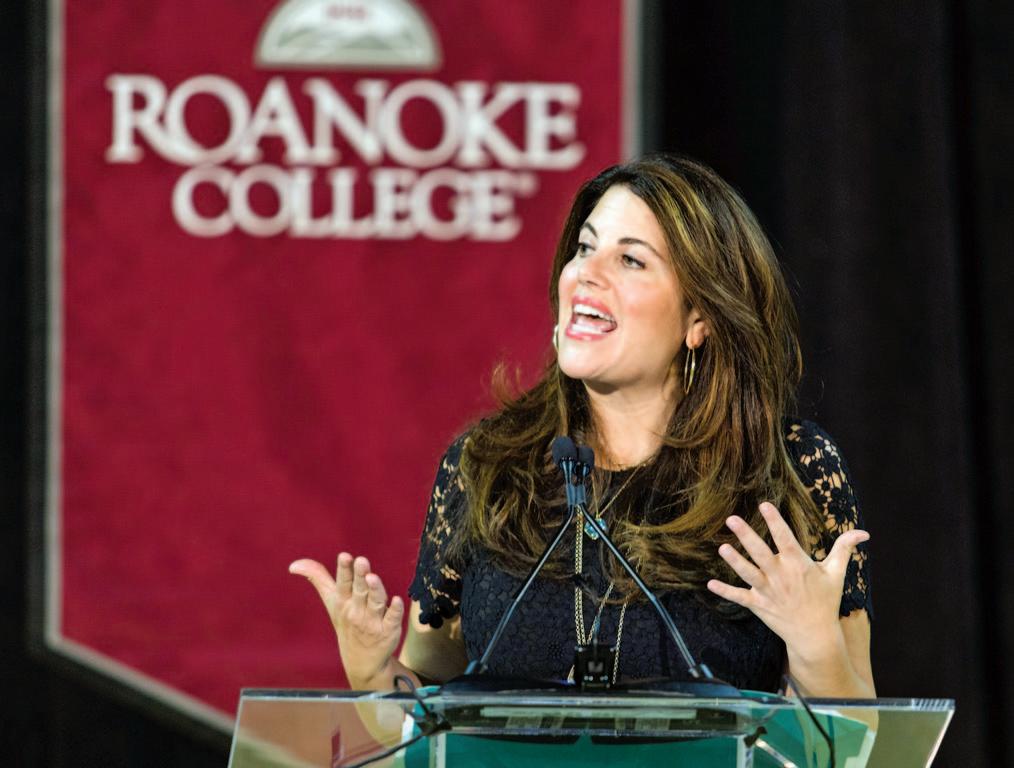
38 minute read
COLLEGE NEWS
c o l lege n e w s
”— Monica Lewinsky
Monica Lewinsky told members of the College community that she is “taking back my narrative.”
Lewinsky calls for shi in social media culture IN THE SPOTLIGHT
FORMER WHITE HOUSE INTERN Monica Lewinsky advocates for a cultural revolution to counter what she refers to as an online “culture of humiliation.”
If she has a platform, it is this: “Click with compassion.”
In 1998, President Bill Clinton admitted to having had what he called an “inappropriate relationship” with Lewinsky while she worked at the White House in 1995-1996. The acknowledgment led to Clinton’s impeachment by the House of Representatives (and acquittal by the Senate) and a scandal that continues to serve as a reference point for American politics.
Overnight, “I was in the eye of a media maelstrom,” Lewinsky said.
Twenty-four years later, with impeachment of President Donald Trump, Lewinsky said she is “now back in the news cycle.” She largely kept discussion of the current political climate out of her presentation at the College, noting that “’impeachment,’ has become a trigger word for me.”
But she is moving forward, reclaiming her life and “taking back my narrative.” She is co-producing a documentary called “15 Minutes of Shame” for HBO Max, and is producing FX’s “Impeachment: American Crime Story.” In 2015, she broke her public silence with a TED Talk, “The Price of Shame.”
“I was publicly silent for a decade; now no one can get me to shut up,” she quipped during her presentation at Roanoke.
Lewinsky’s visit to Roanoke College was sponsored by the Turk Pre-Law program, as part of the College’s examination of civil discourse and democracy.
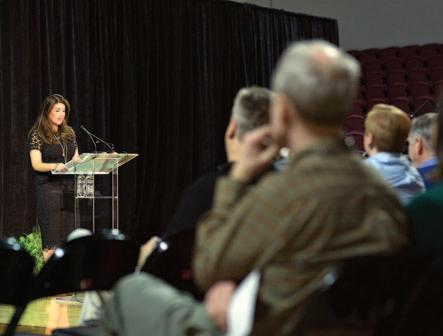
NEW MAJOR Engineering science major to debut in fall
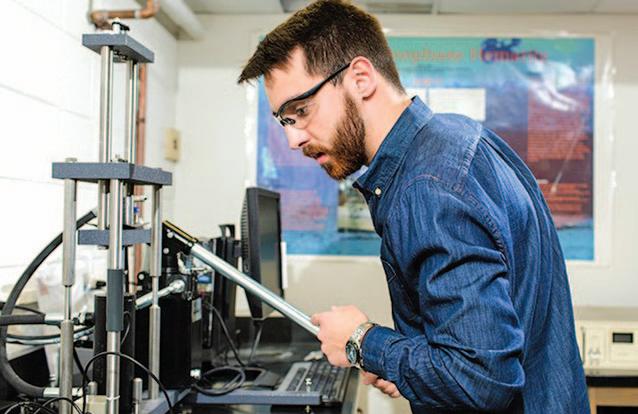
ROANOKE COLLEGE PLANS TO LAUNCH an engineering science major this fall, pending approval of the Southern Association of Colleges and Schools Commission on Colleges.
The new engineering science major fits in well with trending interest in STEM disciplines. The U.S. Board of Labor Statistics shows that STEM career occupations are expected to grow at a higher rate than other occupations in the next decade. Students who major in engineering science will be prepared for careers in fields such as ballistics, electrical and computer engineering, materials analysis and testing, information science, data analytics and audio design and production.
Roanoke College currently offers a dual-degree program in engineering, in which students can earn a B.S. in physics or mathematics at Roanoke College, while also obtaining a B.S. in engineering from Virginia Tech. If approved by SACSCC, future students interested in engineering will be able to earn an engineering degree from Roanoke College versus the dual-degree option.
The new major considers engineering science to be closely aligned with the liberal arts, combining mathematical sciences, and social and natural sciences, along with the humanities. The planned engineering science program also combines the core science and engineering courses with the College’s Intellectual Inquiry core curriculum, rooted in critical thinking, oral presentation and written communication.
“With Roanoke College’s strong liberal arts tradition supplementing the engineering science coursework, potential majors will have a clear understanding of how historical, sociological and psychological facets impact the engineering field,” said Dr. Matt Fleenor, professor of physics. “The future engineering science major will draw on the strong coursework already present in the Mathematics, Computer Science and Physics department, with focus areas in materials, robotics and mechanics.”
The planned engineering science major will be offered as B.S. and B.A. degrees. The B.S. program will emphasize the balance between applied design and underlying scientific principles. The accompanying B.A. program will be best paired with other programs on campus that supplement and support engineering disciplines such as chemistry and environmental studies.
RCMediaBytes
ROANOKE COLLEGE IN THE NEWS
Roanoke College chef films cooking videos, shares campus favorites with students at home — WSLS 10, April 21, 2020
For students, college campus can be their home away from home, which is why one local campus chef is still finding ways to feed comforting campus favorites to those missing them during the pandemic. Matt Phillips is Roanoke College’s executive chef. From overseeing 3,500 meals a day to now just 30, Phillips’ new schedule allows him time to create cooking videos for students. He’s been sharing recipes by request and has received a lot of good feedback. Students like Jordyn Thompson say these videos serve more than the just the stomach. “Even though it’s cooking videos,” Thompson said, “He’s reaching out to let us know, ‘Hey look! You can cook; you’ll make it through this. We’re all gonna make it through it.’” (See Chef Matt at https://vimeo.com/407200206.)
Roanoke College intern aiding Bradley Free Clinic — WXFR TV, April 15, 2020
Bradley Free Clinic in Roanoke usually operates with around 20 employees at its clinic. Currently, with the COVID-19 pandemic and “stay-at-home” order, it has been operating with just eight people on-site. Last August, Roanoke College and the Bradley Free Clinic started a Medical scribe program to help medical students get hands-on experience. For Caitlin Sharkey, this internship is everything she wanted with hands-on learning. “This is me being able to help people, this is what I’ve always wanted to do and now I actually have an opportunity to do it.”
Roanoke College donates goggles to Carilion — WXFR TV, March 30, 2020
During the coronavirus pandemic, personal protective equipment for medical professionals has been running thin. Now, there are new goggles being used at Carilion Clinic thanks to a donation from the Roanoke College chemistry department. Dr. Tim Johann, associate professor of chemistry, says Carilion has been a big partner for them to help prepare students for careers in health care. So when they were contacted by the emergency department and asked for goggles he says they went to work to make it happen. The chemistry department gathered 60 pairs to give to Carilion.
WELL READ FACULTY BOOKS
by Dr. Mary Henold, John R. Turbyfill Professor of History Publisher: University of North Carolina Press Overview: Henold’s work explores the communities of “highly active, largely nonfeminist” Catholic laywomen in the years during and after the pivotal Vatican II Council of the early 1960s — an era that also saw the American feminist revolution ramping up. “Henold gracefully demonstrates how laywomen — a population whose national presence and sheer size alone make them deserving of study — negotiated the dual transformations unleashed by the Second Vatican Council and the women’s rights movement,” wrote Thomas F. Rzeznik, Ph.D., a historian of American religion at Seton Hall University.
by Dr. Daisy Ball, assistant professor of public affairs and coordinator of Roanoke’s criminal justice program, and Dr. Nicholas D. Hartlep, Robert Charles Billings Endowed Chair in Education at Berea College. Publisher: Routledge Press Overview: This book examines the challenges faced by diverse faculty members in colleges and universities. “While access to positions in higher education for faculty of color have increased over the decades…conditions related to campus climate often remain difficult at best, particularly in white majority-dominated institutions,” writes reviewer Warren J. Blumenfeld, Ed.D., lecturer for the College of Education at the University of Massachusetts. “Hartlep and Ball have assembled a veritable gift box filled with an impressive, diverse group of educatorscholars who discuss, from their particular and personal positions as racially minoritized faculty, conditions, stresses and campus climates working within these institutions.”
HEAD COACH NAMED Roanoke adds wrestling to athletic programs
ROANOKE COLLEGE in January announced the addition of wrestling as the College’s 22nd NCAA Division III-sponsored athletic program.
The Maroons will begin competition in the fall of 2021.
“We’re pleased to add wrestling to our listing of men’s intercollegiate athletic offerings,” said Scott Allison ’79, director of athletics. “We think we can build a quality NCAA Division III wrestling program, one that can show evidence of success on the mat and in the classroom. We couldn’t be more excited for the challenges that lie ahead.”
Heading the program will be Nate Yetzer, who has served as Ferrum College’s head wrestling coach since 2012. In March, he was hired to serve as the first head wrestling coach at Roanoke.
In the last eight years at the helm of the Ferrum program, Yetzer has sent 13 individuals to the NCAA Div. III Wrestling National Championships. Four wrestlers have earned All-America honors under his leadership, one of them Ferrum’s first-ever NCAA finalist in any sport. Yetzer’s 2017 team won the NCAA East Regional; he was named NCAA East Region Coach of the Year.
Yetzer’s coaching career includes six years as an assistant coach for the Virginia Tech wrestling program and one year as an assistant coach at Binghamton University in Vestal, New York.
“I’m very excited about the opportunity to start another program here at Roanoke College,” Yetzer said. “It is easy to see why Roanoke College is consistently among the top teams in the ODAC across all sports. It is great to see that Roanoke is going to be invested in this program with expectations to be successful in the classroom and on the mat.”
Yetzer holds a Bachelor of Science degree in Business Administration from Edinboro University and a Master of Arts degree in Health Promotions from Virginia Tech.
While wrestling is not currently a sponsored sport by the Old Dominion Athletic Conference, Roanoke joins Ferrum, Emory & Henry College, Shenandoah University, and Washington and Lee University as ODAC schools that sponsor the sport.
Nate Yetzer has been hired as head wrestling coach.
CONSERVATION College earns Tree Campus USA honor
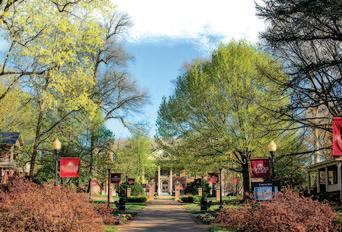
THE ARBOR DAY FOUNDATION announced in February that Roanoke College has received 2019 Tree Campus USA recognition.
The program honors colleges and universities, and their leaders, for promoting healthy trees and engaging students and staff in the spirit of conservation.
To obtain this distinction, Roanoke College has met the five core standards for sustainable campus forestry required by Tree Campus USA: establishment of a tree advisory committee; evidence of a campus tree-care plan; dedicated annual expenditures for its campus tree program; an Arbor Day observance; and the sponsorship of student service-learning projects.
The original proposal for Tree Campus USA recognition, and research required to obtain recognition, began several years ago as a senior research project of Owen Foster ’19. Foster formed a tree advisory committee and oversaw project work that included developing a project outline, and working with the Virginia Department of Forestry and the College’s Building and Grounds department.
After Foster graduated, Madeleine Youngman ’21 assumed leadership of committee work, with vital assistance from Dennis McCarthy, a forester with the Virginia Department of Forestry.
“Without him, none of this would be possible,” Youngman said.
The Roanoke College community has been on board an undeniably emotional rollercoaster, along with the entire nation, as we’ve watched confirmed cases of COVID-19 surge throughout the United States.
With six students in isolation — one of whom had been tested (negative, thankfully) for the virus — the College sought ways to temper alarm and distress, all the while emphasizing the hard truth of necessary action in what has become the new, “not-so” normal.
Students were asked to return home, initially for three weeks. In-person classes were canceled, replaced with remote instruction. All NCAA Division III athletics-related activities were suspended. Dining Services continued to serve meals in the Commons dining hall, initially on a dine-in basis, then, as the number of students, faculty and staff on campus declined, takeout only.
Students pleaded, even petitioned, that the College proceed with long-scheduled plans to hold Commencement on May 2. But on March 20, the College, offering some solace, announced that Commencement would not be canceled, but postponed. Then, this jarring announcement: that in-person courses would not resume for the remainder of the semester.
That afternoon, College President Michael C. Maxey and several Cabinet members took to Facebook Live to answer questions from students, faculty, parents, alumni and staff, addressing concerns in the same way they had during a question-and-answer session on the Back Quad with students, faculty and staff the week before.
Questions poured in from the estimated 500 people watching the live stream. How will I receive my diploma? What about our international students? Can seniors take photos on campus? What should we do about our belongings on campus? Can you tell students about the importance of staying home? How are the Maxeys doing?
As the president and members of Cabinet offered thoughtful, thorough responses during the nearly hour-long, live Q&A, comments from students, alumni, parents and other members of the College community filled the College’s Facebook page.
A parent remarked how she was “happier than ever that my daughter chose Roanoke. Thank you for true leadership.” Said another: “As a Maroon Mom, we all have concerns and appreciate your help!” One student remarked how she felt “appreciated during this tough time.” “So much love for this school and community,” said another.
Mitch Beavers ’09 commended College administrators for providing clarity through such an open medium.
Transparency. Anything less would run counter to the College’s purpose and principles.
On March 17, in a letter to the College community, President Maxey wrote of his appreciation for sacrifice. He wrote how every member of this community has made the sacrifices necessary to weather these troublesome, fragile times.
“Sacrifice, simply put, is giving up something of value to get something even more valuable in the future. Real sacrifice comes at a cost; it might hurt, might induce discomfort, might provoke unease. It is a necessity at this moment,” Maxey wrote.
“You should be proud of how the College community has answered the call to act in the face of the worldwide threat posed by COVID-19… We know the process has not been perfect; we will always have bumps in the road. But the more we can come together, be good to one another, and make what sacrifices are necessary, the greater the result.”
“I know Roanoke College will prevail.”
In Challenging Times By Leslie Taylor
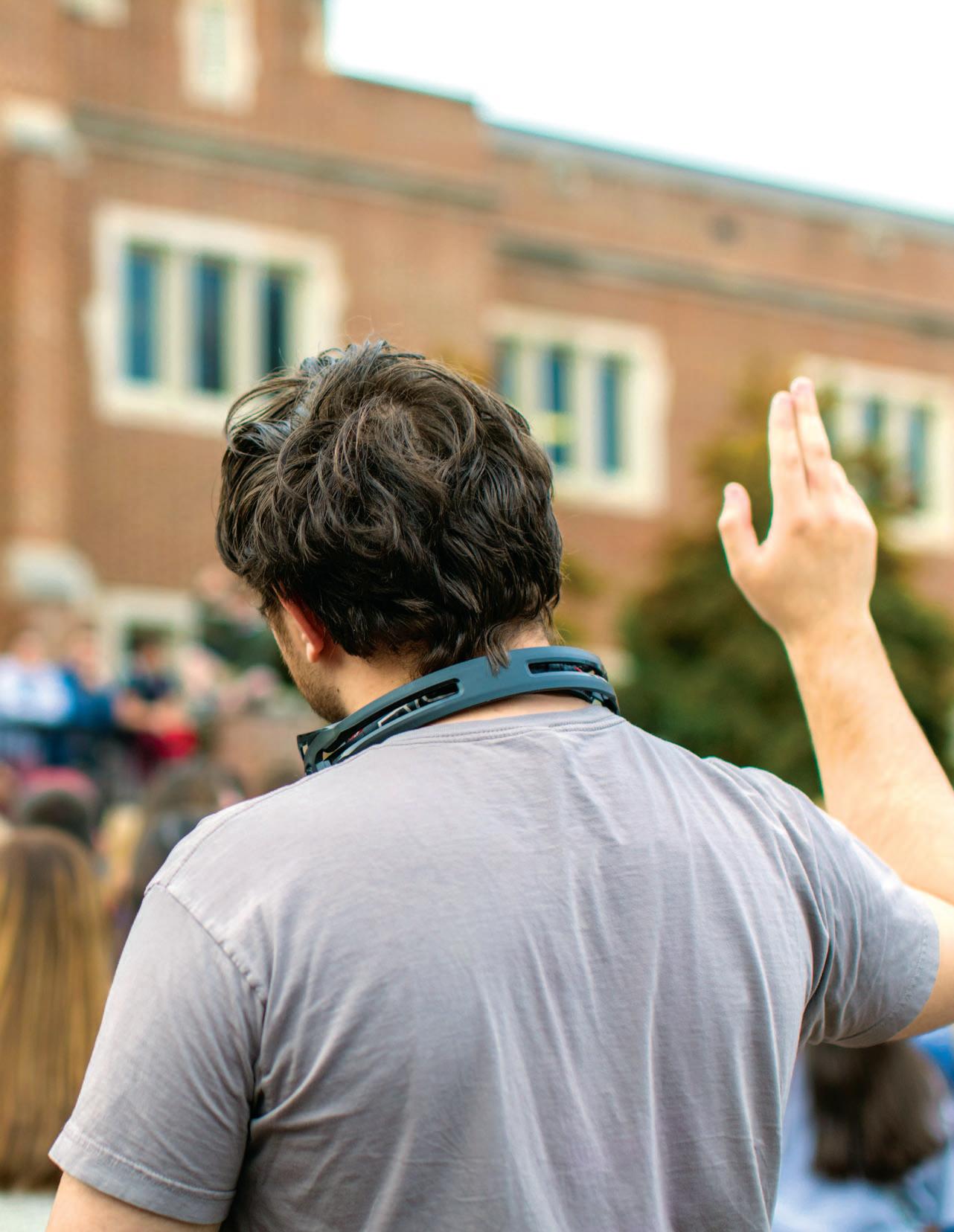

Dr. Todd Peppers, Roanoke College professor who wrote a one-man, one-act play about Justice Oliver Wendell Holmes Jr., one of the most widely cited U.S. Supreme Court justices. Photo of Holmes courtesy of the Library of Congress. Photo of Peppers by Richard Boyd.
Channeling Great Dissenter” “ the
HOW THE LATE U.S. SUPREME COURT JUSTICE OLIVER WENDELL HOLMES, JR. BROUGHT A ROANOKE COLLEGE PROFESSOR THROUGH A DIFFICULT PERIOD. THE RESULT IS A ONE-ACT, ONE-MAN PLAY ABOUT JUSTICE HOLMES, TITLED, SIMPLY, “HOLMES.”
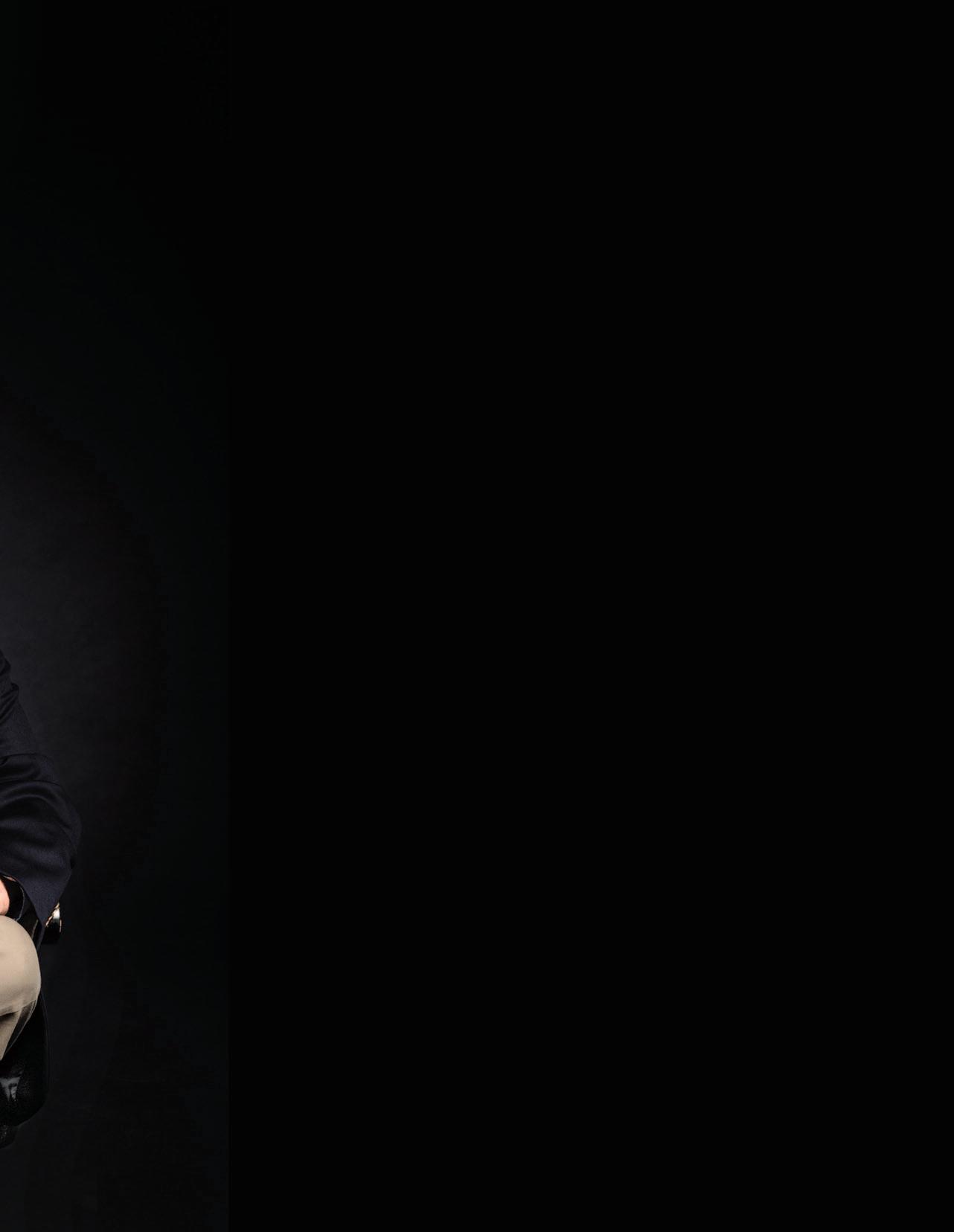
r. Todd Peppers and his oldest child, Charles, walked through Arlington National Cemetery, looking for one gravestone among the thousands.
They found it in Section 5 of the massive cemetery. Grave 7004 is unmistakable, with “HOLMES” carved deeply into the granite. Peppers walked up to the gravestone and ran his hand over the rough granite top. Then he patted it gently.
Peppers has never met the two people buried beneath the headstone — U.S. Supreme Court Justice Oliver Wendell Holmes Jr. and his wife Fanny — who died nearly 100 years ago. But Peppers felt close to them and was trying to get a little closer as he ran his hand over the stone.
Holmes outlived his wife, Fanny, and would often come to this very gravestone and visit his wife. He’d run his hand over the top of the stone and then pat it gently. D
More than 80 years after Holmes’ death, here Peppers was, performing the same routine. He had no notions about a spiritual experience, but wanted to see what Holmes saw and feel what he felt.
“You try to do things that put you in the same place,” Peppers said.
Peppers, Henry H. & Trudye H. Fowler Professor in Public Affairs at Roanoke College, has spent nearly six years writing a one-man play about Holmes’ life. Experiences like the day at Arlington have helped shape it. The play, which is set to be performed on the floor of the Supreme Court, presented many challenges
for Peppers. He’s never written a play, and writing an hour and a half of monologue for a man long deceased is another one of the difficulties of this process.
“You’re trying to channel the dead,” Peppers said. Sorting through The project began in darkness.
Six years ago, Peppers’ mother was diagnosed with ALS (amyotrophic lateral sclerosis, also known as Lou Gehrig’s disease), and Peppers was having trouble sleeping. He searched for ways to keep his mind occupied in the wee hours and found solace in a vast collection of literature on Holmes.
Peppers has long been fascinated with Holmes, who served on the Supreme Court from 1902-1932 and has become one of the most widely cited and researched judges in the court’s history.
Over the years, Peppers has collected articles, books and collections of Holmes’ letters. Several of his students have helped him gather these documents, he said. Years ago, he and a student research assistant went up to Harvard Law School and sorted through Holmes’ personal papers. The research from that trip helped inform multiple articles, even this play, Peppers said.
Peppers’ work on the play underscores the importance of being well-rounded and learning a variety of skills, he said.
“I told my dad, who was an academic, that in some ways this play is an advertisement for a liberal arts education,” Peppers said. “When I was an undergraduate at Washington and Lee, I took classes in history, literature, and creative writing. I was a philosophy major who did theater. And then I went to law school. All of these experiences contributed to writing a play.”
Though he started reading through these documents as a late-night task to ease his mind, Peppers began recognizing patterns in Holmes’ writing. Peppers took out a pen and started picking out frequent topics and phrases.
“At some point, I don’t know when, suddenly an idea of writing about what I was marking up came to me,” Peppers said. “And I thought, ‘Maybe a play.’”
But he’d never written a play. Peppers has written books and articles, but never a play. He envisioned a one-person play, and he started buying and studying one-person plays about historical figures: “The Belle of Amherst” about Emily Dickinson, “Give ‘Em Hell, Harry” about Harry Truman, and others.
Peppers had an enormous amount of material to sort through when it came to Holmes. Holmes’ distinctive sense of humor and way of speaking have made him a popular figure for historians and legal experts to dissect. Clare Cushman, resident historian for the Supreme Court Historical Society, said Holmes stands out in the court’s history.
“Holmes is one of the wittiest and best writers ever to have sat on the court,” Cushman said. “That man never turned a phrase that was mundane or cliché.”
As Peppers noticed more and more of these Holmesisms, he began collecting them. He compiled a Holmes glossary, including phrases such as “taking a whack at life,” which pops up a few times in the play.
But to form a story and make deeper observations about Holmes’ life, Peppers had to fill in some gaps. He had to read between the lines a bit. Having published academic books, essays and studies, Peppers was used to fact-checking every claim and every reference. This was a new experience.
“When you’re a social scientist or a legal scholar, you’re very careful,” Peppers said. “Every source is documented and checked and double-checked. This play is historical fiction. Eighty, 85 percent of it is completely accurate. Much of the words are Holmes’ himself, from the letters, but 15 to 20 percent of it is what I call ‘informed speculation.’ Some of the most intimate things, you’re guessing at.”
Those private matters included, principally, the impact that Holmes’ experience in the Civil War had on his life. That would eventually form the backbone of the play, but Peppers wanted to consult a few others.
When Peppers approached Cushman with a draft of his one-man Holmes play, Cushman could barely contain her elation. The two of them had worked together on essays and articles in the past, Cushman said, and she’d come to respect Peppers’ expertise, particularly when it came to Supreme Court clerks.
Cushman has read a few plays regarding Supreme Court justices, including plays about Thurgood Marshall and lesser-known former Chief Justice Edward Douglass White. She read through Peppers’ draft and saw in it, great potential.
This being Peppers’ first attempt at playwriting, he and Cushman thought the script could use some pol-
ishing. Cushman referred Peppers to Mary Hall Surface, an accomplished playwright, director and dramaturg in Washington, D.C. Peppers liked the idea, but wondered about the actual function of a dramaturg. Essentially, he learned, it was a consultant and editor for a play.
Cushman initially figured Surface was too busy to work as the dramaturg for this play, but thought she could refer Peppers to someone else who could give Peppers pointers about how to turn his potential-laden script into something more entertaining and accessible for audiences.
Then Surface read the play.
“When I got it and I read it, I thought, ‘This is fascinating material,’” Surface said. “So I decided, why not start a conversation with Todd myself?”
Surface started talking with Peppers in 2018. They set to work turning the script into a piece of theater with a more dramatic structure.
“When it came to me, it was filled with wonderful material, extraordinary research,” Surface said. “Holmes’ language is so rich and evocative and filled with images, and he spins a good yarn and has some great one-liners so there was fantastic material.”
Particularly, Surface wanted to see more conflict in the play. She talked to Peppers about an approach called “the spider under the table.” As Peppers explained, everyone has “spiders,” little bits of conflict in their life that usually remain out of view. Then, an event brings that “spider” out into the open, and the character has to confront that conflict.
In the case of “Holmes,” the titular character keeps his Civil War experiences and the loss of his wife hidden away. Then, on his 90th birthday, Holmes is asked to give a radio address to the nation (which actually did happen, on March 8, 1931). As he considers what to say to the country, Holmes wades through his guilt, grief and trauma. The speech brought out the “spider” of the war into view; the audience will see how Holmes grapples with it.
Peppers said that Dr. Richard Smith, vice president and dean of Roanoke College, was extremely helpful and supportive of the project. Smith approved of Peppers using funds from Peppers’ endowed chair status at the College to hire Surface. Endowed chair funds are offered to professors outside their salary to assist with research and other academic endeavors.
“It’s because of the endowed chair that I was able to write the play, avail myself of help from some talented professionals, and push it over the top,” Peppers said. A timely message Though the play is deeply rooted in the life of a man who died in 1935, its topics have resonated with Peppers. His late-night research on Holmes began in the wake of his mother’s ALS diagnosis. He continued his reading and research as his grandmother died in December 2015 and as his mother died three months later.
For much of the play, Holmes is reflecting on dealing with loss in his own life, whether the death of his wife, Fanny, or the loss of his Civil War brothers-in-arms.
“Certainly there was loss and sorrow in my own life at the time I started the play,” Peppers said. “I do think that it made me more sensitive to the losses in Holmes’ own life.”
But he has become more aware of another issue that forms the spine of the play — survivor’s guilt.
The idea of survivor’s guilt did not enter the mainstream until the 1960s, when therapists saw similar feelings of remorse in Holocaust survivors. It has since
“When [the play] came to me, it was filled with wonderful material, extraordinary research,” Holmes’ language is so rich and evocative and filled with images...so there was fantastic material.” — Mary Hall Surface, playwright, director and dramaturg
been recognized in survivors of war, major disasters or even car crashes, where those who live feel guilty for surviving while others have not.
Holmes enlisted and fought in the 20th Regiment Massachusetts Volunteer Infantry, also known as the Harvard Infantry, in the Civil War, suffering three wounds but recovering from them and outliving many of
Holmes as a young Army officer. Much of the play focuses on Holmes’ wartime experiences.

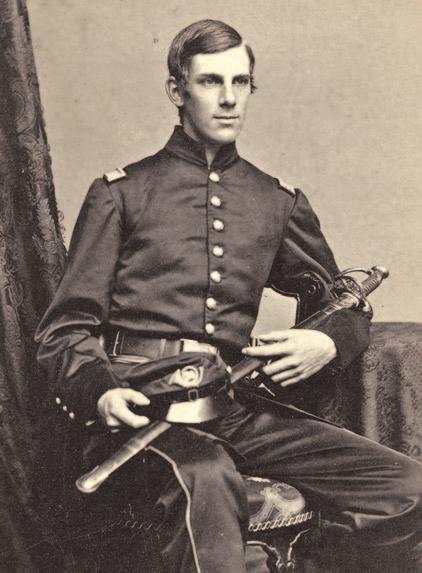
his comrades. At the Battle of Ball’s Bluff, he was shot just above the heart. At the Battle of Antietam — the bloodiest day in American military history — Holmes was shot through the neck and watched as Confederates advanced past him and then were repulsed. At the Battle of Chancellorsville, Holmes was shot in the foot.
After his three-year enlistment ended in 1864, Holmes chose to go home to Boston instead of re-enlisting.
“Was I a coward?” Holmes asks himself in the play. “My fallen brothers, do you forgive me? Do I forgive myself?”
Peppers said many historians have theorized about the effect the war had on Holmes, but it’s hard to find
“It was so fabulous. The parts that were funny, were funny. The parts that were poignant, people were weeping.” — Clare Cushman, resident historian for the Supreme
Court Historical Society
hard evidence of that. Holmes only spoke sparingly about the war, but some of his actions hint at his deep emotional attachment to the conflict. In his letters, Peppers said, Holmes wrote that he couldn’t bear to read anything about the war. And late in his life, Holmes was seen weeping when someone read a poem titled “The Old Sergeant,” about a Civil War soldier.
Peppers said that instance in particular stood out to him.
“If you’re in your early 90s and it’s still that fresh for you, that signals to me that one, you’ve been scarred, but two, you have a heart,” Peppers said.
As he was writing the play and analyzing Holmes’ wartime experience, Peppers had a few real-life interactions that underscored the idea of survivor’s guilt and war-related trauma.
Peppers was talking about the play over lunch with one of his former professors. The 94-year-old listened as Peppers mused about how remarkable it was that Holmes was still affected by the war into his 90s. The professor, who fought in Europe in World War II, said something that stuck with Peppers.
“I don’t know if I’ve ever recovered,” the former professor said.
Peppers had a similar conversation with a former student. The student, who was a much more recent veteran, was also struggling with the aftereffects of experiencing combat up close. Seeing these two men so affected, at such different times in their lives, got Peppers thinking.
“There are the two bookends of my former student in his late 20s still having nightmares, and my 94-year-old former professor sort of musing out loud that he may still be scarred and suffering from it,” Peppers said. “Maybe there’s a timely message in that, as we have a new wave of young people who have fought in Afghanistan and Iraq.”
He said he thought of the two men, particularly the younger one, as he was working on the most recent version of the play. It made him think about whether enough is being done for these soldiers who return from war. A grand stage
When the play was just about ready in August 2019, Surface and Cushman arranged for it to be read to members of the Supreme Court Historical Society. Surface asked her husband, an actor named Kevin Reese, to read the play.
Cushman expected to enjoy it, but didn’t expect the words to resonate so deeply with the members of the historical society.
“It was so fabulous,” Cushman said. “The parts that were funny, were funny. The parts that were poignant, people were weeping. We realized that we had something quite special on our hands.”
At that point, the members of the historical society decided to push for something quite uncommon – for the play to be performed on the floor of the Supreme Court. Cushman said there have been plays and shows performed in conference rooms at the Supreme Court, but she’s almost certain a play has never happened on the actual floor of the courtroom.
Peppers, too, was astounded at how alive the words seemed when Reese read them.
“It was fascinating for me because I didn’t know what it was like to have a professional actor read the words that you wrote,” Peppers said. “At times, my mouth was hanging open because how he interpreted the words, the humor he found in the words really surprised me.”
Everyone at the reading was moved by Reese’s performance and excited at the prospect of him performing the role of Holmes before the Supreme Court. Reese, who is 62, said it’s an interesting challenge to play a 90-year-old man and to deal with such heavy material for an hour and a half.
“That’s a King Lear, a Mount Everest kind of role,” Reese said.
The play was scheduled to take place in June, but with the U.S. Supreme Court closing in the wake of the COVID-19 pandemic, the performance has been postponed. Peppers said he hopes it goes on in the fall, but it’s still too early to tell when life will return to normal.
Cushman said confidently that the play will still be performed at the Supreme Court whenever it happens, and she hopes that won’t be the only performance.
“Todd did a fantastic job, and we hope this performance will lead to many, many more performances across the country, particularly in Boston where [Holmes] was from,” Cushman said, “because it deserves to have as wide an audience as possible.” RC
Turn of Phrase
Holmes’ distinctive sense of humor and way of speaking have made him a popular figure for historians and legal experts to dissect. Dr. Todd Peppers, in conducting research for his play, “Holmes,” amassed quite a collection of these “Holmes-isms.” Below are a few examples.
“Life is like an artichoke; each day, week, month, year, gives you one little bit which you nibble of — but precious little compared with what you throw away.” “Rum business, this growing older. Nature withdraws here a raisin and there a plum from your pudding, until one doubts if anything is left but sodden dough.”

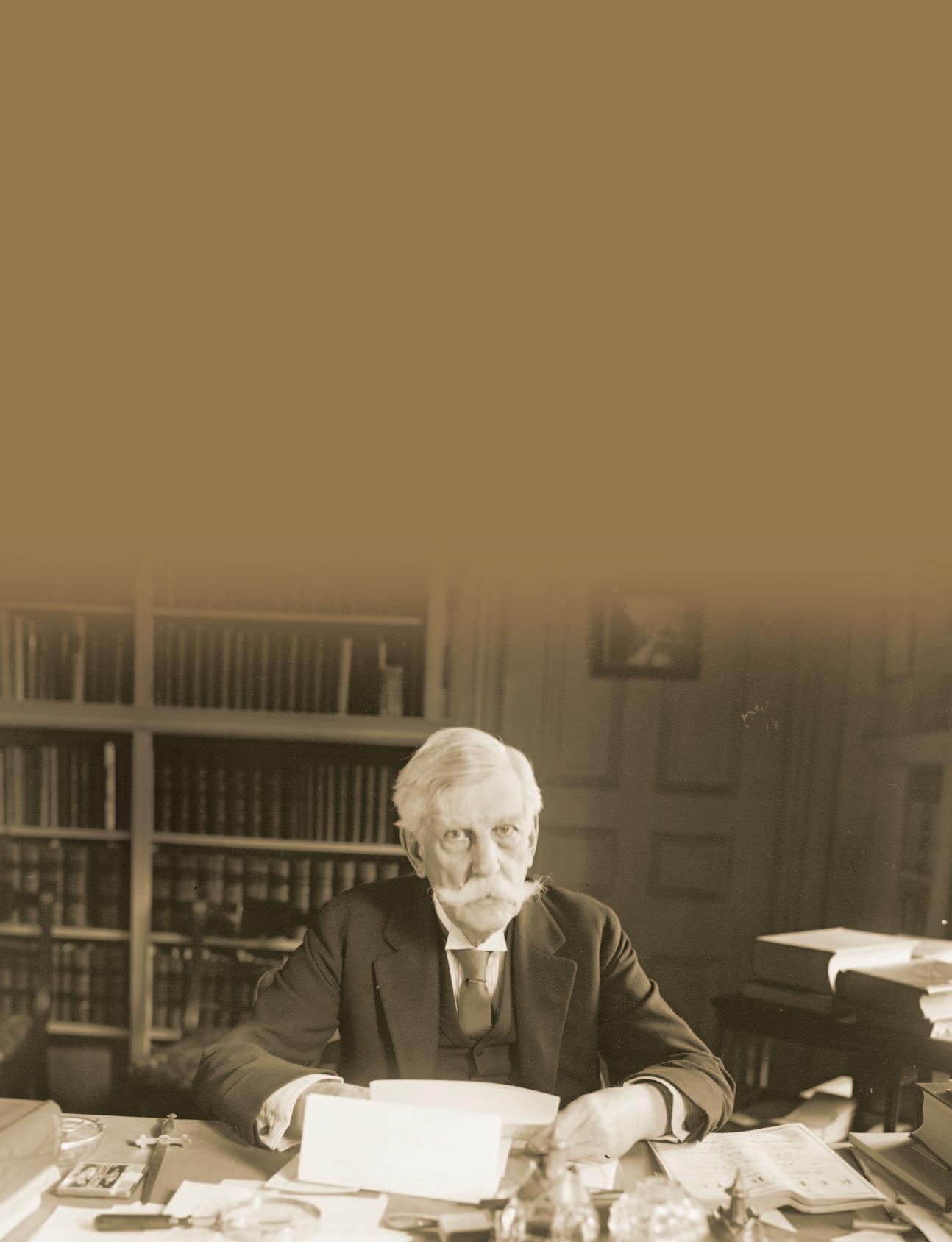
“Every calling is great when greatly pursued.”
A few truths from two alumnae writers.

but also hold the promise of fame and fortune. Reality can bite...
fter a Hollywood producer options an article, essay or book, the next step isn’t necessarily choosing between Anne Hathaway and Viola Davis for the starring role.
As two Roanoke College alumnae can attest, having someone purchase the rights to your work, doesn’t mean a movie or TV show will actually get made.
“To option something basically means, ‘We’d like to take your idea and make it into a different format,’” explains Tamara Duricka Johnson ’98, whose book “31 Dates in 31 Days” published in 2011. “It doesn’t even necessarily mean, ‘We’d like to make it into a different format.’ It might mean, ‘We’d like to have permission to possibly, maybe, someday, turn it into a different format, and it may or may not fully resemble your story.”
When Mandy Len Catron ’03 learned her 2015 essay-turned-viral-sensation “To Fall in Love with Anyone, Do This” had been optioned by a major Hollywood studio, she debated whether she should share the news on social media. She didn’t want her friends and family to get the wrong idea.
“It sounds like a big deal and it’s not, not a big deal, but it’s also like, a very tentative thing,” says Catron, whose well-received book, “How to Fall in Love with Anyone: A Memoir in Essays,” came out in 2017.
If it hadn’t been for a Google alert set for her name, Catron might have never learned her essay, which ran in The New York Times’ Modern Love column, was being used as inspiration for a potential Hollywood project. The alert directed Catron to an article about director Malcolm D. Lee’s plans to develop a romantic ensemble comedy inspired by her piece. A
— MANDY LEN CATRON
She quickly got in touch with people at the newspaper, who hadn’t heard about the project either. They promised to get back in touch after they got to the bottom of things. Last summer, they let Catron know they’d sold the option for the essay.
“It’s just Universal Studios paying The New York Times to not let anyone else make the article into a movie for some period of time. Usually, I think, it’s a year or two,” Catron explains. “If they do decide to make a movie, then they’ll have to buy a full article rights from The New York Times.”
After agents take their cut, Catron says The New York Times will give her half of “a small amount of money.”
“Which is brilliant,” she says. It will be “way more than I got for writing the article. It’s still very exciting because it’s like this little bonus from having written this article five years ago now,” Catron adds.
Over the years, several producers have contacted Johnson to inquire about optioning her 2011 book “31 Dates in 31 Days” for a movie. She always turned them down. “It just didn’t feel right,” Johnson says.
Johnson’s book was born from a resolution she made in 2009 after suffering a string of ugly breakups. With a goal of getting better at dating, Johnson challenged herself to go on a date a day for a month. She ended up marrying one of her suitors. Today, the couple lives in

Mandy Len Catron recently quit her full-time teaching position at the University of British Columbia to write full time.

Hollywood with their three daughters. “My life, for real, is the makings of a Hollywood chick flick,” Johnson admits.
Since it is the story of her life, Johnson wants to make sure it never gets transformed into something not quite up to standard. “I definitely don’t want people messing with my life story in ways that I’m going to be embarrassed to have my kids watch,” she says.
Johnson said “Yes,” on the other hand, when a producer asked to option her story for a reality dating show a few years ago. The concept was far removed from her actual experience — they mostly wanted to borrow the title from her book — and she got to hold on to the rights to turn her story into a feature film.
The filmmakers made a pilot but never got a network to bite. “That’s just kind of the way things work,” says Johnson, who works as a news producer and writer for KTLA in Los Angeles.
Since Johnson hasn’t been happy with other people’s ideas for turning “31 Dates in 31 Days” into a film, she decided to roll up her sleeves and do it herself. “I’m in the middle of writing a screenplay,” she says. “I don’t know if I’ll do anything with that, but at least it will give me an idea of where I would be OK with somebody taking my story.”
If her happily-ever-after tale never makes it to the Big Screen, Johnson is OK with that. “All I was really trying to do was figure out my
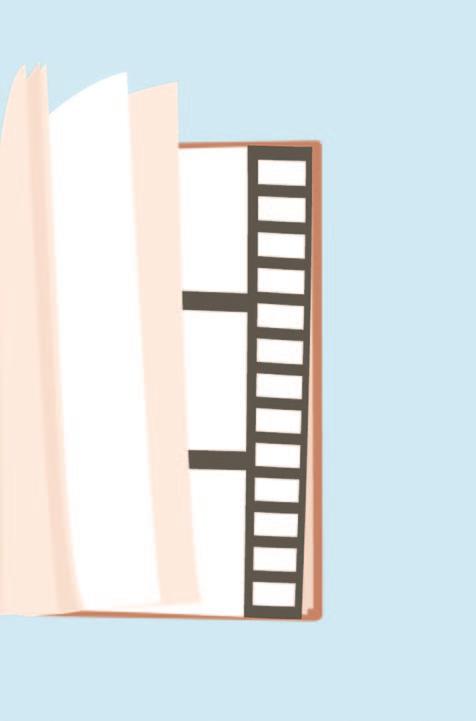
dating life,” she says of her 2009 resolution. “So everything else is ice cream and cherries on top.”
As for Catron, she recently took the leap and quit her full-time teaching position at the University of British Columbia. “I’m able to write pretty much every day, which is the coolest thing that could possibly happen,” she says.
In July 2019, Catron’s article “What You Lose When You Gain a Spouse” appeared in The Atlantic, which she calls her “dream publication.” In the piece, Catron looks at what we humans lose “by making marriage the most central relationship in a culture.” Her premise caused quite the commotion on Twitter and earned her an invitation to appear across from Gayle King on “CBS This Morning.” “It’s been nice to see it getting people talking,” Catron wrote in an e-mail after filming the spot.
Since she’s no longer getting a regular paycheck, Catron will tell you she’s not at all opposed to selling the rights to her work. “Money buys time,” she says. “Anything I can do to keep supporting myself as a writer is a win in my book.”
During a recent flight, Catron caught part of “The Sun is Also a Star,” a young adult drama based on the 2016 book by Nicola Yoon. In both the book and the movie, the characters discuss the 36 questions Catron wrote about in her New York Times essay that went viral.
— TAMARA DURICKA JOHNSON
“It’s definitely kind of a cool feeling to see that something you’ve written has made an impact on popular culture,” Catron explains. “It felt very surreal to sit on a plane and be watching a movie that was, in some small way, inspired by something I wrote.”
That said, Catron would be delighted if Lee never transforms her essay into a movie. “I have no particular interest in seeing my life portrayed on the screen,” she says. “It makes me uncomfortable to think about it.”
A surprising statement coming from a writer who has been very open about her life in her work.
“I know I write about my personal life, but I feel very in control of that,” she says. “Otherwise, I like a little bit of privacy and a little distance from these kinds of things.” RC
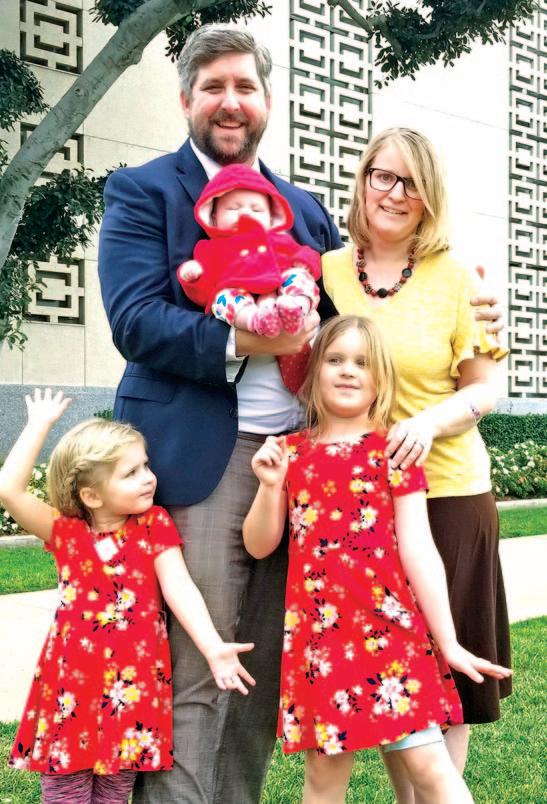
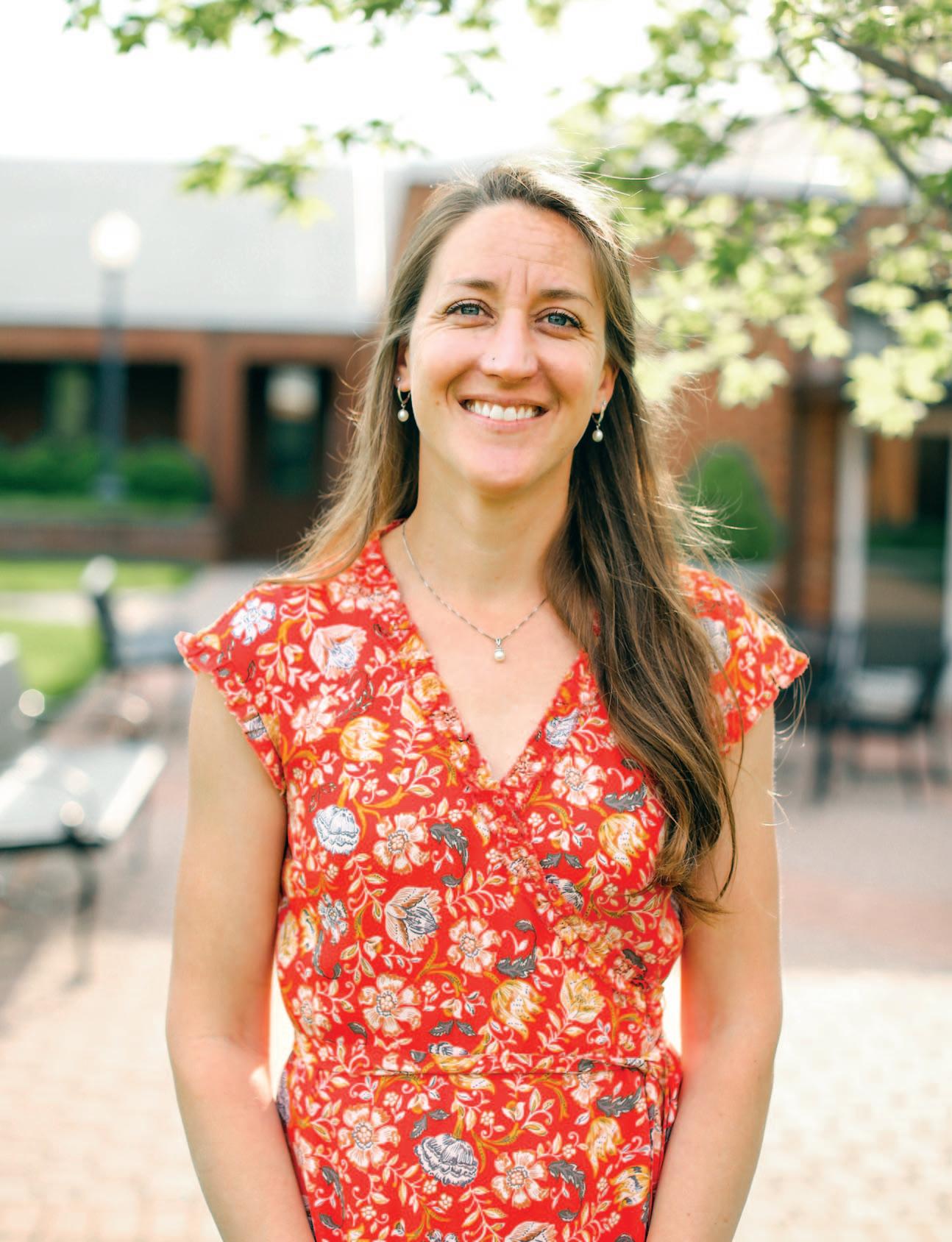
Shifting the paradigm
BY SHARON NANZ ’09
Over time this work is going to lead — it already has led — to a major paradigm shift in how our city does business. “
— Dr. Liz Ackley ”
While public health has been top of mind in our nation and the world in recent months, it is never far from the mind of Dr. Liz Ackley, Brian H. Thornhill Associate Professor in Health and Human Performance at Roanoke College.
For years, Ackley has put considerable energy into improving community health inequities in the Roanoke Valley. In 2018, she founded the Center for Community Health Innovation (CCHI) at Roanoke College. Thanks to its innovative nature and positive community impact, Ackley’s work is gaining momentum and garnering national attention.
CCHI serves as a unique and neutral liaison between Roanoke Valley residents and partner organizations. Its efforts have resulted in informative datasets, valleywide collaborations, creative initiatives and notable grants. A core project is the collection of benchmark data using the Roanoke Valley Community Healthy Living Index (RV-CHLI), a health survey that monitors health outcomes, healthy behaviors, and barriers to healthy living among students enrolled in Roanoke City Public Schools. Each year, nearly a dozen Roanoke College students from diverse academic backgrounds are involved in the project.
With Ackley at the lead and Roanoke College as the anchor institution, a collaboration was formed across diverse sectors, including the CCHI, the Roanoke city manager’s office, Freedom First Credit Union, and two local nonprofits, LEAP for Local Food and Healthy Roanoke Valley. Working jointly, they have sought to improve community health and promote equitable resource allocation. A top priority is bringing a grocery store to the “food desert” area of the city of Roanoke’s Northwest quadrant.
Major funding partners began to take notice. The Reinvestment Fund, a national mission-driven financial institution, in partnership with the Robert Wood Johnson Foundation, twice funded projects of which Ackley is a driving force. The first was the Roanoke City Invest Health initiative, which provides intensive educational and collaboration training for community stakeholders.
But Ackley eventually realized that strong data and quality initiatives aren’t always enough to effect needed change. At stake was whether community recommendations could be incorporated into the “Roanoke City Plan 2040,” a comprehensive plan document that the city is creating to guide policy decisions and long-term investments.
Fortunately, ChangeLab Solutions, a national nonprofit organization whose mission is to create “healthier communities for all through equitable laws and policies,” stepped up and reached out to Ackley, the team leader for the Invest Health initiative.
“We were actually approached by ChangeLab Solutions to be in their cohort initiative,” Ackley said. She advised ChangeLab Solutions of the need for more equitable local policies “to really give us the foundation for what we hope to do.”
A grantee and partner of the Robert Wood Johnson Foundation, ChangeLab Solutions was impressed with the existing collaborative structure and the Roanoke Valley Community Healthy Living Index data already available, and offered their technical and funding assistance.
“With this technical assistance grant, we approached the city manager,” Ackley said. “He charged us with five goals, set us up with a planning team, and then we met every other Friday for a year and a half. So, we got to help inform [the City of Roanoke’s] 2040 comprehensive plan.”
ChangeLab Solutions featured Roanoke’s successful work on their national website.
The funding also aided a second high-impact community project. The CCHI brought in the New York Academy of Medicine to teach public deliberation. The planning team recruited a group of residents representing the demographics of the city of Roanoke.
“Over the course of a two-day period, we put them through a public deliberation session to decide where our next [U.S. Department of Housing and Urban Development] target area would be,” Ackley said. “They were essentially making a $5 million decision: How should the city allocate HUD funding over the course of the next five-year period?” The outcome was a list of three neighborhoods that had both need and opportunity.
“We listened to residents,” said Ackley, who was named this year to Roanoker magazine’s “40 Under 40” list. “That allows us to try to make decisions that really speak to the social and cultural desires of a community.” RC








